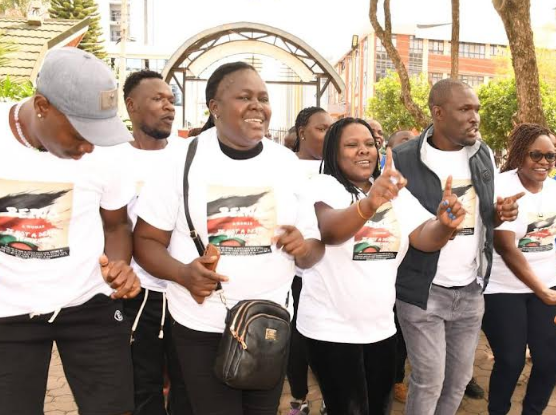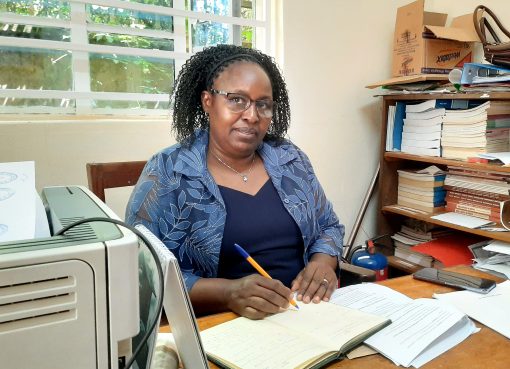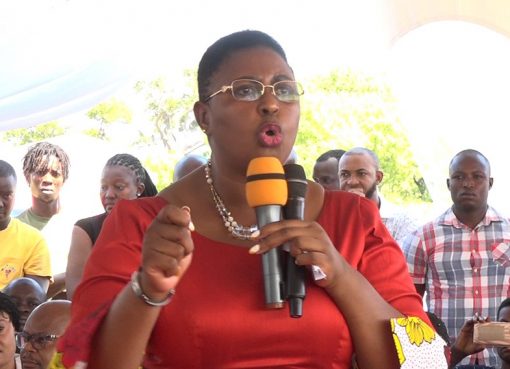Nakuru County is in the process of establishing Gender-Based Violence (GBV) rescue centres in all the 11 constituencies to address issues of violence and offer counselling services to victims.
County Executive Committee Member (CECM) for Youth, Sports, Gender, and Social Services Josephine Achieng said that the centers will play a crucial role in providing psychosocial support and case management for GBV survivors.
The CECM said the county government had identified battering, defilement, rape, early marriages, and pregnancies as some of the forms of violence meted out on women, men, and children and highlighted several measures the county was implementing to combat the GBV, including victim referrals, countywide sensitisation programmes, and legal aid services.
Ms. Achieng said the County was in the process of establishing a major rescue centre to provide integrated care and strengthen service delivery for Sexual and GBV survivors to serve as a safe house and a place where survivors would learn new skills for income generation.
“Our ultimate goal is to have the rescue centres in all the 11 sub-counties where victims can seek refuge for rest for the night as they plan on retributive steps and get psychosocial support and counselling to be able to cope with their condition,” she added.
The CECM lamented that in some parts of the county, parents were marrying off their daughters at a tender age, with school-going girls being the most vulnerable to teenage pregnancy.
Ms. Achieng urged community-based organisations and humanitarian agencies to supplement the county government’s efforts by setting up private rescue centres, especially in rural areas which are prone to such kinds of violence.
Achieng underscored Governor Susan Kihika’s commitment to women’s empowerment, including distributing income-generating equipment and encouraging women to apply for the Enterprise Fund under the Department of Trade to improve their economic status.
Speaking during the launch of the “Stop Femicide!” campaign, the CECM disclosed that preliminary studies have indicated that most of those who get involved in GBV abuse alcohol and drugs. Others, she added, are still trapped in outdated cultural beliefs, and they assault their wives as a way of asserting themselves.
She said they were engaging faith-based organisations and religious and community leaders to join hands with the national and county governments in fighting this vice.
At the same time, the CEC disclosed that statistics at the County indicated that the number of men who have been assaulted or experienced violence had significantly gone up, though their number, compared to women, remained lower.
She lamented that in some parts of the county, parents were marrying off their daughters at a tender age, with school-going girls being the most vulnerable to teenage pregnancy.
The CEC urged community-based organisations and humanitarian agencies to supplement the county government’s efforts by setting up private rescue centres, especially in rural areas prone to such kinds of violence.
More than 100 women and girls have been killed in the last six months as the country grapples with gender-based violence (GBV) that threatens the fabric of society.
The Ministry of Interior released the latest figures as members of the Technical Working Group (TWG) on Gender Violence were sworn into office to identify trends, hotspots, and causes contributing to GBV and femicide.
The fight against GBV received a boost after President William Ruto constituted a task force to look into the matter. President Ruto, in a special gazette notice, appointed former Deputy Chief Justice Nancy Baraza to head a 34-member team that will probe the surge in gender-based violence, including femicide. Among the terms of reference for the task force will be to assess, review, and recommend measures to strengthen policies and structures for eliminating femicide and GBV.
The Baraza-led task force will further analyse the adequacy of current legal and policy frameworks and make proposals on necessary amendments to laws in a bid to tame frequent violence against women.
The TWG is also expected to evaluate resource allocation, training levels, and operational effectiveness in managing prevention, response, support, and investigations related to cases on GBV and femicide.
Assessment of the role of social media coverage in GBV and femicide, including its influence on public perception, awareness, and policy-making, will also form part of its mandate.
The task force will identify psychological issues related to the rise in femicide and establish socioeconomic challenges contributing to the crime.
According to the United Nations Office on Drugs and Crimes report, 725 cases of femicide were reported in 2024, translating to 2.66 per 1,000 women.
The report further shows that 47 women were killed in Kenya weekly. About 75 percent of these killings were committed by someone known to the victim, such as an intimate partner, relative, or friend. Globally, the report indicates a woman is killed every 11 minutes.
By Esther Mwangi




